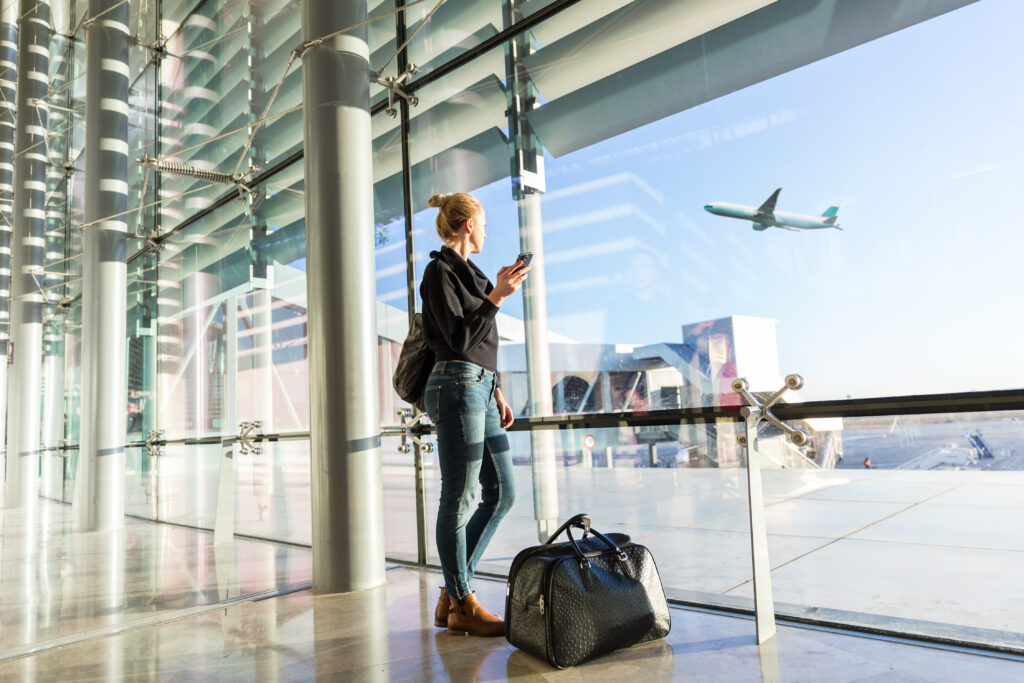Article by Martina Battocchio

Although all business travellers should be more aware of their personal security and safety, female travellers in particular face unique security risks. Women may in fact be seen as ‘soft targets’ and therefore need to take extra precautions, especially when travelling alone.
Research conducted in 2018 by the Global Business Travel Association in partnership with American International Group Travel found that more than 8 out of 10 women say they have experienced safety-related problems or incidents while travelling for business. The main findings of the survey of female travellers show that safety concerns have a definite impact on travel organisation and management. In particular:
- 90% state that it has an effect on leisure activities while travelling for work
- 86% report that it has an impact on the type of reservation, e.g. female travellers prefer to book only day flights or central accommodation
- 84% mention an impact in relation to the country in which they travel for work
- 81% indicate that the frequency of their business trips was affected by security problems
- 80% state that security problems had an impact on their productivity during business trips
Female workers are generally confident in their companies’ risk management programmes: 83% believe their company cares about their safety during business trips and 87% say they feel comfortable expressing their safety concerns. However, they feel that more could be done.
68% think that the company should have specific policies for their needs, in line with the results of a recent survey among companies themselves, which showed that only 18% say they have specific policies in place.
Many regions of the world may present unique security challenges, even taking into account cultural and religious aspects that may have a greater impact on female travellers than their male counterparts. Awareness of cultural norms and expectations can therefore help ensure safe travel. Before travelling, it is essential to check local customs and culture to consider which customs and traditions may be most appropriate for the country of destination, including clothing or accessories to wear.
Still according to the research, female travellers perceive the Middle East and North Africa area to have specificities in terms of cultural, legal and security issues to consider before embarking on a trip. Egypt and Saudi Arabia seem to be the countries in this area of most concern to female travellers. When travelling to these areas, special aspects need to be taken into account, e.g. women may be subject to restrictions when travelling, there may be specific customs for dress in public, displays of affection between men and women in public may be considered inappropriate or illegal, to name but a few examples. Knowing the specifics of the country of destination is certainly an effective way to prevent and mitigate travel safety risks.
How can companies address these challenges to keep female workers safe?
As COVID and the war in Ukraine have taught us, the situation in an area can change from one day to the next. New risks can quickly emerge and conditions, even in traditionally safe destinations, can suddenly deteriorate. The first tool available to companies, in line with their duty of care towards their staff, is specific travel security training that prepares female workers for jobs in medium and high-risk countries. Gathering information and planning the trip properly is certainly another fundamental tool to understand what is happening ‘on the ground’. Sometimes it is difficult to assess the accuracy or reliability of the information available online, where we find official government channels, institutional websites, specialised websites, social media, international or local media. This is why we decided to share a list of OSINT (Open Source Intelligence) tools useful for business travellers:
